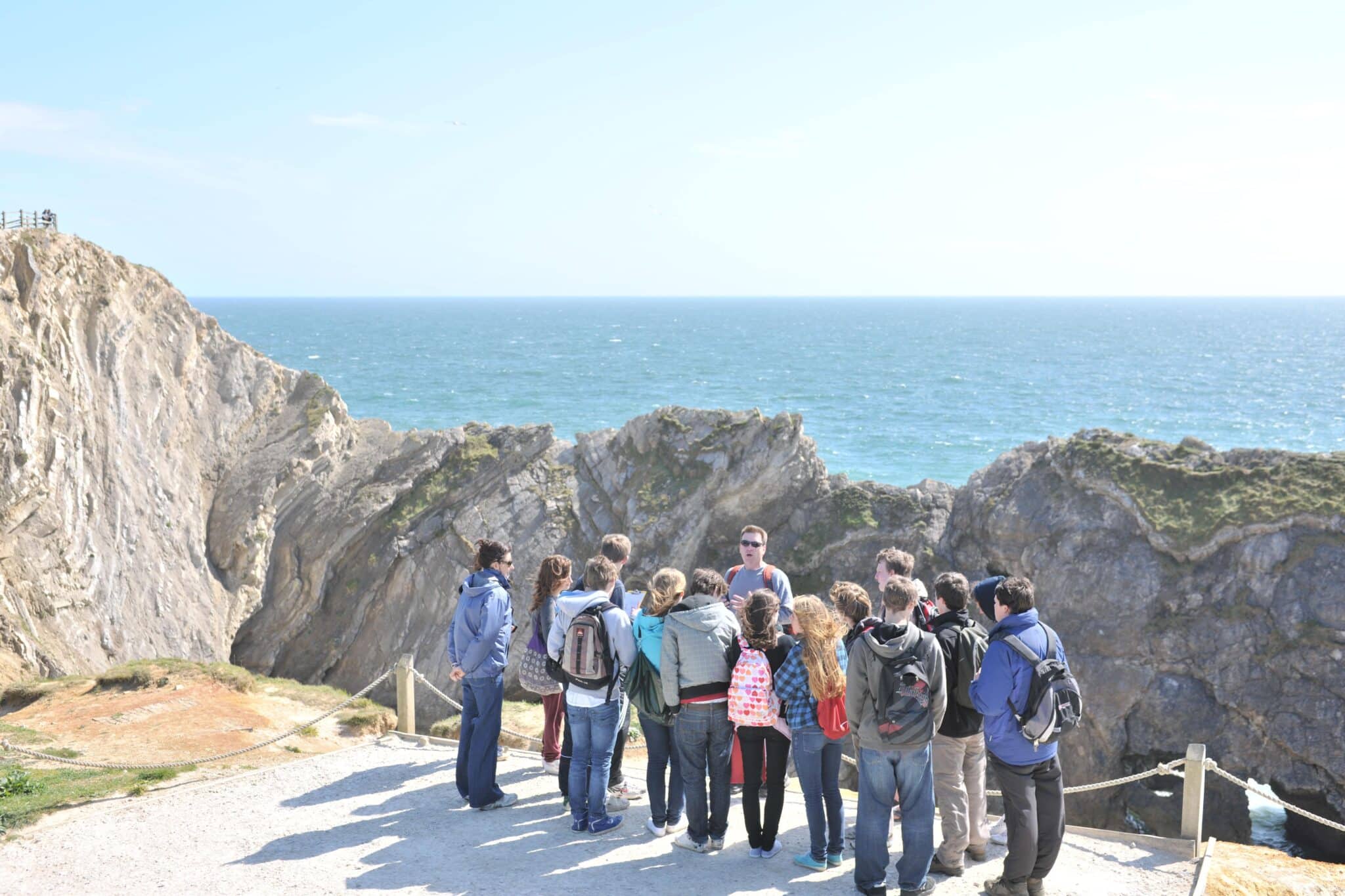For many primary school teachers, a fieldwork trip isn’t just a break from the classroom – it’s a chance to get pupils outside, exploring, discovering, and learning in a hands-on way. But field studies go beyond just being a fun day out. When they’re planned with purpose, they become powerful learning tools that really help children connect with what they’re studying in class.
Whether it’s following a river’s journey or exploring a woodland habitat, field studies give pupils the chance to see science and geography in action. They’re practical, memorable, and often spark the kind of curiosity that makes learning stick.
What are field studies?
In a nutshell, field studies are outdoor learning experiences that link directly to the curriculum, especially in subjects like geography and science. They’re not your average school trip. These trips are designed with clear goals in mind, helping pupils build skills and hit learning targets.
So, what might pupils get up to on a field study?
- Asking questions and finding answers by observing the world around them
- Gathering and recording data from nature or local environments
- Investigating habitats, ecosystems, or physical features like rivers and coastlines
- Using maps, drawings, or simple graphs to share what they’ve found
It’s all about learning by doing, and for secondary students, that kind of experience can really bring lessons to life.
Here are some classic examples of fieldwork activities:
- Measuring river flow, depth, and sediment
- Surveying land use or assessing environmental quality
- Using quadrats and transects to explore biodiversity
- Creating field sketches or annotated maps
- Studying the impact of sea defences
These activities aren’t just interesting – they help pupils think like scientists and geographers.
How do field studies benefit secondary school students?
At secondary school level, field studies become an essential part of the curriculum. They go from simple observation to structured investigations, building higher-level skills in geography and science.
Whether it’s a KS3 project, a GCSE fieldwork enquiry, or an A Level NEA, these trips help students apply their learning in real contexts – and build the confidence to work independently.
Here’s how secondary students benefit:
Critical thinking and analysis
According to the Royal Geographical Society, fieldwork enables students to collect data and observations, which are then analysed and evaluated using various methods. This process deepens their understanding of people, places, and environments.
Students learn to do more than just describe what they see. They analyse patterns, evaluate their methods, and back up conclusions with evidence.
Curriculum support at every stage
- KS3: Fieldwork helps build key enquiry skills
- GCSE: Most courses require two fieldwork enquiries (human and physical) and include exam questions based on them
- A Level: Students complete an independent investigation (NEA) worth 20% of their final grade
Independent learning
Older pupils take the lead – choosing their methods, collecting data, and making sense of it all themselves.
Real-life application
Topics like coastal erosion or urban regeneration become much more relatable when you’re studying them on site.
Skills for life
Fieldwork encourages teamwork, problem solving, organisation, and communication skills that are valuable well beyond the classroom. Whether planning a habitat survey or collecting data, pupils must divide roles, follow instructions, and adapt to challenges like unexpected weather or missing data. These real-world tasks help build confidence, resilience, and the ability to work well with others.
Inspiration for the future
Fieldwork often sparks a passion for geography, science, or environmental studies. For some students, it’s the first step towards a related degree or career.
Field Study Ideas for Different Key Stages
Choosing the right fieldwork for your students age, ability and location is key. Here are some popular ideas:
| Field Study Theme | Activities | Suitable for |
| Rivers | Measure velocity, width, depth, and sediment size; evaluate flood management | KS3, GCSE, A-Level |
| Coasts | Beach profiling, longshore drift studies, and coastal defence evaluation | KS3, GCSE, A-Level |
| Urban environments | Land use surveys, environmental quality index, pedestrian counts, and traffic analysis | KS3, GCSE |
| Rural studies | Farm visits, tourism impact surveys, and transport accessibility | KS3, GCSE |
| Ecosystems | Quadrat sampling, habitat mapping, species identification, and microclimate measurement | KS3, GCSE |
Experience Field Studies with PGL
At PGL, we’ve been delivering trusted, curriculum-aligned residentials for over 65 years. We work closely with teachers to make sure that every field study supports your curriculum objectives and provides meaningful, measurable learning outcomes.
Why choose PGL for your next field study?
- Curriculum-aligned programmes from KS2 to A-Level, covering river systems, coasts, urban geography, ecology, and more
- Experienced instructors who guide students through field techniques and support learning outcomes
- Purpose-built centres in ideal locations for geographical and environmental studies
- Support with planning, logistics and risk assessments – saving you time and reducing stress
- Commitment to safety and safeguarding, with fully trained staff and detailed pre-trip guidance
- Resources to support post-trip learning, including data analysis tools and follow-up activities
We’ll help you create a trip that delivers real educational value and gives students an experience they’ll never forget.
Contact us today to explore our field study options or start planning your next curriculum-aligned school trip.


